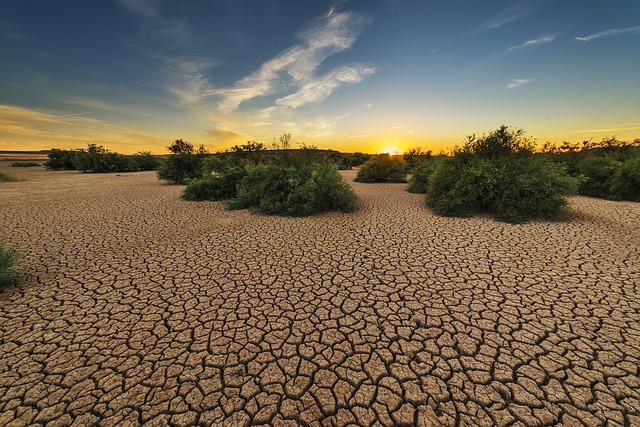Heat Waves: Climate change
Because of climate change, heat waves—those stretches of unbearably hot weather that make you want an air conditioner—are happening more often and worsening. But why do they occur, and how can we stay safe when they do?
Understanding the Heat
During a heat wave, it’s not just hot outside. It’s a prolonged period of extremely high temperatures, frequently accompanied by high humidity. The exact definition changes based on where you are, but it usually means that the highs and lows have been above average for several days.
Table of Contents
High-Pressure Systems
Warmth waves primarily originate from high-strain patterns within the higher ecosystem. These systems block cooler air from entering and entice hot air near the ground, like a lid. Over time, this warmth that doesn’t move gets stronger, becoming a heat wave.
Climate Change Intensifies Heat Waves
It’s essential to understand the role climate change plays. As the world warms, the average temperature will rise. High-pressure systems can trap even more heat, making heat waves more frequent and robust.
What Heat Waves Do to People
Both people and the earth are in great danger during heat waves. Here are some of the most important effects:
The Impacts of Heat Waves
Too much heat can make you thirsty and tired or even give you heatstroke, which can be fatal.
Health Impacts
Excessive heat can lead to dehydration, heat exhaustion, and even heatstroke, a life-threatening condition. The most at-risk groups are younger youngsters, older adults, and those with long-term health issues. Heat waves can also worsen breathing problems like asthma.
Environmental Impacts
Heat waves can worsen droughts by evaporating more water from the land and plant life. This can put plenty of stress on the environment and cause fires. Increasing temperatures can also hurt the air by creating more dangerous ozone (ground-stage ozone).


Staying Cool During a Heat Wave
Following these guidelines can help you combat the heat and ensure safety during a heat wave.
Hydration is Key
Even if you don’t feel thirsty, drink much water throughout the day. The best choice is water. Stay away from sugary drinks and booze, which will make you thirstier. It would help if you always carried a portable water bottle with you.
Beat the Heat with Timing
If you have to be outside, you should do less demanding things, especially when it’s hot, like between 10 a.m. and 4 p.m., and when it’s cooler, like in the morning or evening.
Dress for the Weather
Wear light-colored, open clothing made of fabrics that allow air to pass through, such as cotton. This allows your sweat to escape, keeping you cool. A wide top hat can keep the sun off your face and head.
Seek Cool Spaces
You can spend time in cool places like libraries, stores, or community-run cooling centers. You can also cool down by taking cool baths or showers. Fans with ice packs in front of them can help cool you down if you don’t have air conditioning.
Never Leave Anyone Behind
It is essential to do this for kids and pets. Never leave a person or animal alone inside a parked car, as they can quickly become extremely hot.
Check on Vulnerable People
Check in on an elderly circle of relatives, participants, or friends who may be having difficulty in the comfort of a regular foundation.
Heat Wave Helpers for Your Home
Here are some ways to keep your home cool during a heat wave:
Close Windows and Blinds
During the most up-to-date components of the day, use blinds, curtains, or shades to block the sun and keep your home cool.


Cook Strategically
Use your oven and range sparingly because they provide warmth. During cooler nights, consider grilling outside or opt for non-cooking meals such as salads and sandwiches.
Make Smart Use of Fans
Set ceiling fans to spin counterclockwise to create a cool breeze. If you want to attract cooler air more effectively, use fanatics alongside open windows.
If you follow these tips and understand heat warnings, you can stay safe and healthy during a heat wave. Keep in mind that heatstroke is a medical emergency. You must see a doctor if you have signs like dizziness, stress, or a quick heartbeat.
conclusion
Climate change is making heat waves an increasingly problematic issue. It is crucial to understand the causes of heat waves and their detrimental effects on our health and industry. We can reduce the risks of these extreme climate events by living calmly and securely. Do your studies, prepare, and most importantly, keep your cool. Remember these tips to stay cool! Overall, we should know how climate change changes our weather and take steps to adapt to and lessen its effects. Making small changes in our daily lives can help reduce the severity and regularity of heat waves. This will make the future safer and more sustainable for us and future generations.
Frequently Asked Questions (FAQ)
Q1: What defines a heat wave?
A: A heat wave is a long stretch of very high temperatures, often joined by high humidity. The exact meaning changes from place to place, but generally, it means several days in a row with temperatures much higher than usual.
Q2: How is climate change affecting heat waves?
A: Climate change raises average temperatures, making heat waves more frequent and with more force. People are using more high-pressure devices to trap heat, prolonging and intensifying heat waves.
Q3: Who is most at risk during a heat wave?
A: Young kids, older adults, and people who have already had long-term health troubles are much more likely to get ill during heat waves. Dehydration, heat exhaustion, and heatstroke are more likely to appear to these agencies. It may be critical to keep them safe during periods of excessive warmth.
Q4: How can I stay cool without air conditioning?
A: Even if you do not have air conditioning, you can stay cool by drinking various beverages, sporting light garments, striking out in more excellent or shady places, taking cool showers, and musing with ice packs. Going to public places with air conditioning, like shops or libraries, can also help.
Q5: What are the symptoms of heatstroke?
A: Heatstroke is a clinical emergency characterized by elevated body temperatures, feelings of dizziness or discomfort, a rapid heartbeat, and a lack of sweating despite the warm weather. If you or someone else has those symptoms, you should see a health practitioner immediately.


Amjad Mustafa, the owner and author of Keen2Know, is a highly qualified individual with strong experience in technical engineering. He is an experienced professional with a variety of business, technology, and car knowledge. His academic background prepared him for a diverse career and established him as a prominent figure at the intersection of these rapidly evolving industries.



